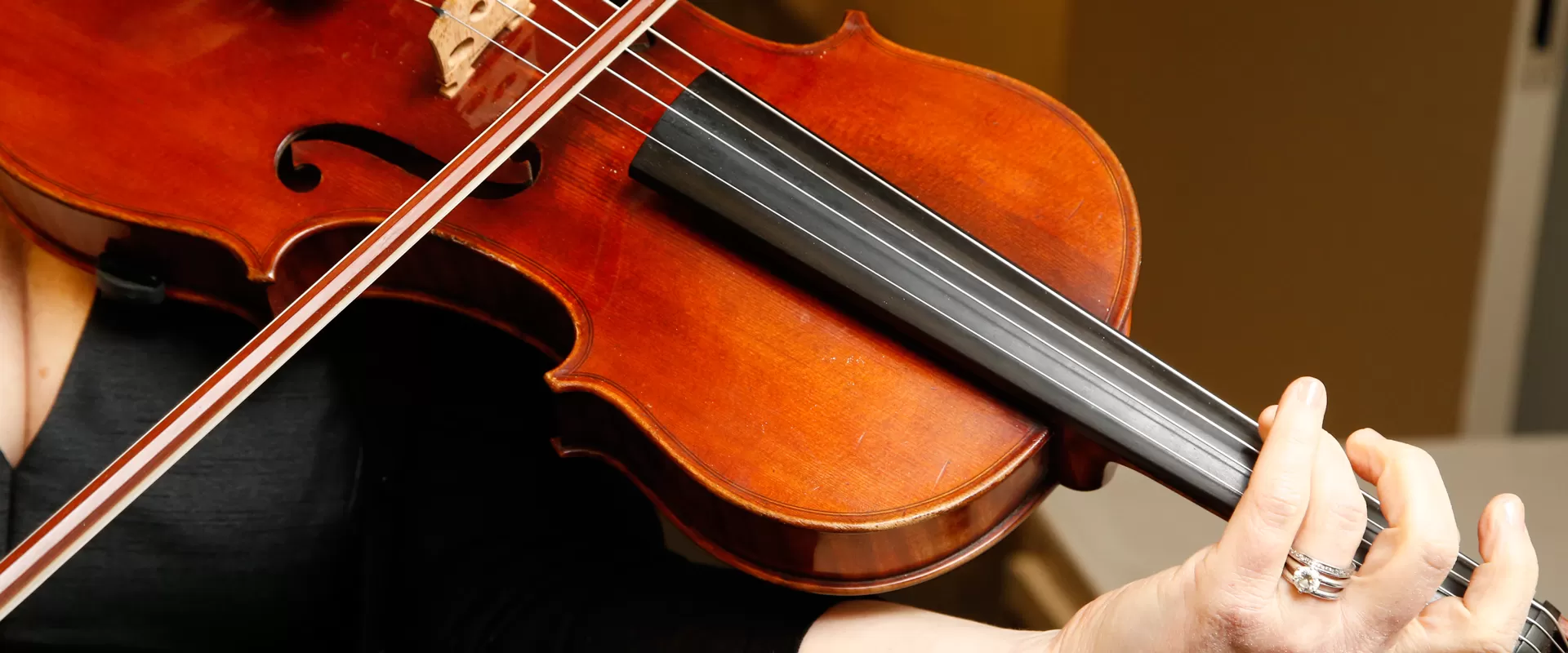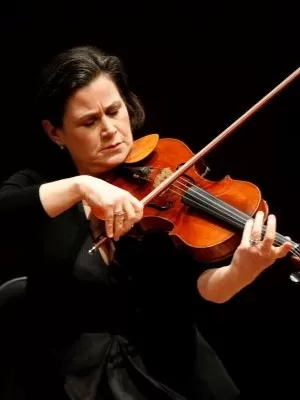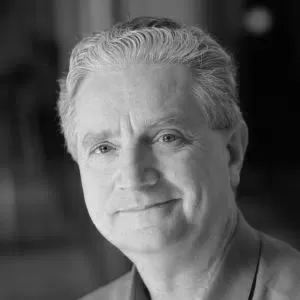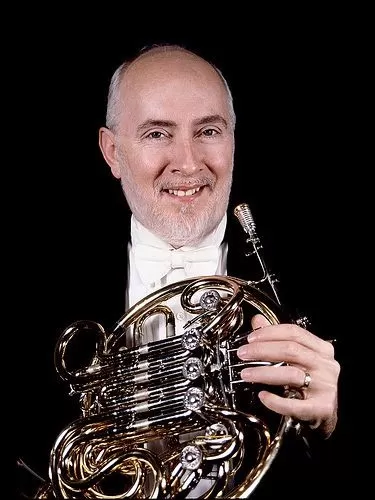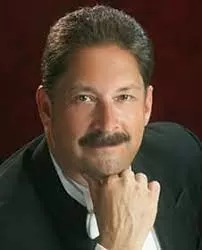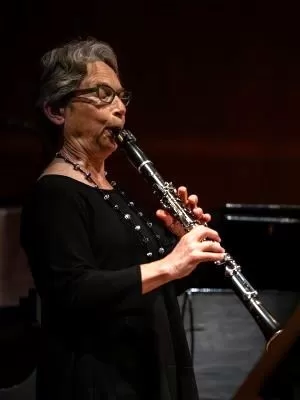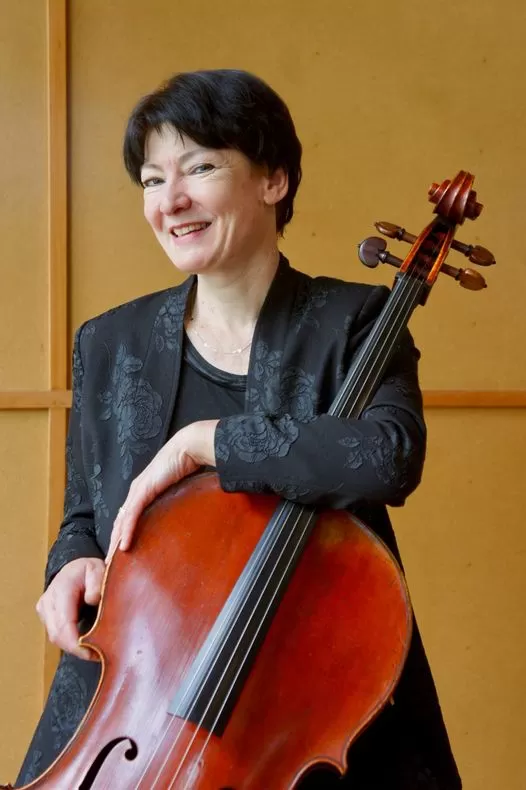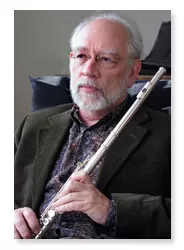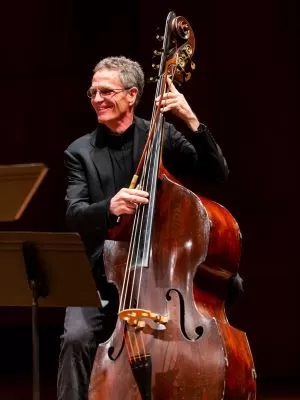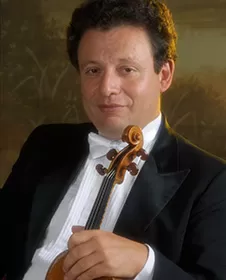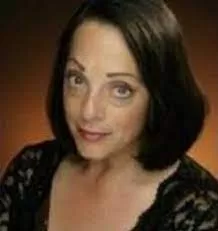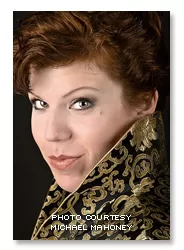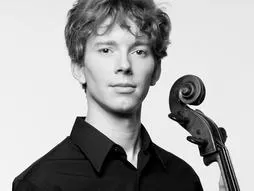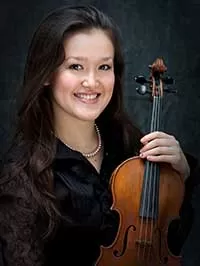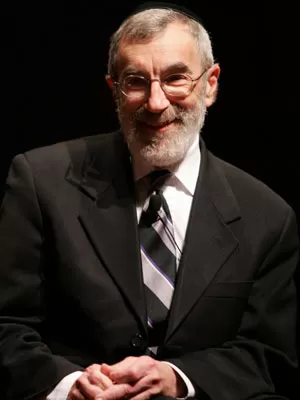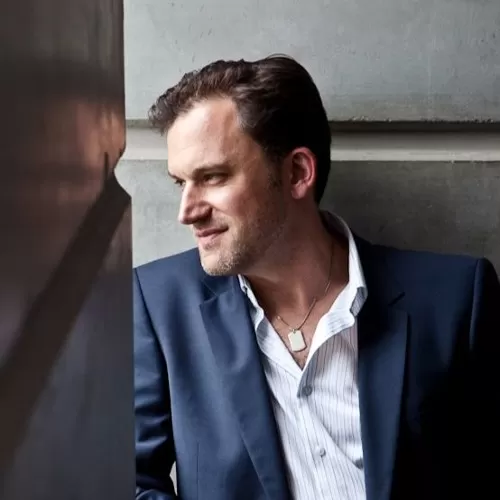May 12, 2008 - 12:00 pm
Spring Concert May 12, 2008 7:30 p.m.
Ray of Sunshine
| Program [Ray of Sunshine] | |
|---|---|
| Nigun (From Baal Shem -Three Pieces of Chassidic Life, 1923) | Ernest Bloch |
| Marié Rossano, violin (2008 David Tonkonogui Memorial Award winner) Mina Miller, piano |
|
| Concertino for flute, viola and double bass (1925) | Erwin Schulhoff |
|
Scott Goff, flute Susan Gulkis Assadi, viola Jonathan Green, doublebass |
| Serenade, Kyticka, Andante (1940) | Egon Ledeč |
| United States Premiere | Mikhail Shmidt, violin Leonid Keylin, violin Susan Gulkis Assadi, viola Mara Finkelstein, cello Mina Miller, piano |
| Yiddish and Hebrew Folk Songs | Viktor Ullmann |
|
The Northwest Boychoir, Joseph Crnko, conductor |
| Mayn Shvester Khaye (2008) | Arr. David Stock |
|
Julie Mirel, mezzo soprano Mikhail Shmidt, violin Leonid Keylin, violin Susan Gulkis Assadi, viola Mara Finkelstein, cello Laura DeLuca, clarinet |
| Ghetto Songs (2008) | Paul Schoenfield |
|
Morgan Smith, baritone Angela Niederloh, mezzo soprano Kurt Beattie, narrator Paul Schoenfield, piano Mikhail Shmidt, violin Laura DeLuca, clarinet Joshua Roman, cello Jonathan Green, doublebass |
Nigun (From Baal Shem -Three Pieces of Chassidic Life) 1923
Ernest Bloch (b. Geneva 1880 - d. Portland, OR 1959)
For much of the 20th century, Ernest Bloch was the preeminent voice of a "Jewish" sound in concert music. Bloch was born into a home where the chants of Talmud study sank deeply into his musical memory. Later, his teachers included Émile Jacques-Dalcroze and Eugène Ysaÿe. In Geneva, he was a bookkeeper in his father's business, while composing, conducting, and lecturing at the Geneva conservatory. Describing his music, Bloch stated: "It is the Jewish soul that interests me, the complex, glowing, agitated soul which I feel vibrating throughout the Bible… this is in me, and is the better part of me."
Bloch made a significant contribution to American musical life as director of the Cleveland Institute of Music (1920-25) and the San Francisco Conservatory (1925-30). He lived for most of the 1930s in Switzerland, but emigrated to the United States in 1940 in reaction to the rampant anti-Semitism throughout Europe and the Third Reich's policies banning the performance, publication and employment of Jewish composers. He was a professor at the University of California, Berkeley from 1942-52. For many years, until his death in 1959, Bloch lived in the small coastal town of Agate Beach, Oregon.
Bloch's Baal Shem (Three Pieces of Chassidic Life), depicts spiritual and religious elements of orthodox Jewish life. The second of three movements, the Nigun, is an improvisation which reflects deep emotional and religious feeling. Especially important in the Hassidic movement, a nigun-"humming tune" in Hebrew-is a religious song, generally sung without words, that can serve as a path to higher consciousness and transformation of being.
Concertino for flute, viola and double bass (1925)
Erwin Schulhoff (b. Prague 1894 - d. Wülzburg concentration camp 1942)
Erwin Schulhoff was an audaciously original voice whose fascinating career was brought to an abrupt end in a Nazi concentration camp. Born in Prague, Schulhoff was recognized as a child prodigy by Dvorˇák. He studied piano and composition at the conservatories of Prague, Vienna, Leipzig and Cologne, and in 1913 took lessons with Debussy.
A formidable pianist, Schulhoff championed the music of his time—Scriabin, Schoenberg, Berg, Webern—as well as the avant-garde quarter-tone piano music of his Czech compatriot Alois Haba. Through his friendship with painter George Grosz, also a collector of contemporary American jazz recordings, Schulhoff became acquainted with this idiom. He worked as a jazz pianist in the "Hot Jazz" clubs of Europe in the 1920s, and was one of the first composers (predating even Gershwin) to incorporate jazz elements.
With the rise of Nazism, Schulhoff’s career in Germany ended, despite his artistic triumphs in Berlin, Leipzig and Dresden. He returned to Prague. In 1939 he became a Soviet citizen, and sought to emigrate there following the Nazi takeover of Czechoslovakia that year. Before his visa arrived, he was arrested in Prague as a Jew, a “degenerate artist,” and a Soviet citizen—an undesirable on all fronts. In 1941 Schulhoff was deported to the Wülzburg concentration camp in Bavaria, where he died the following year.
Schulhoff composed the Concertino for Flute, Viola and Doublebass in 1925. The work was inspired by Slavonic folk music, and especially by Schulhoff’s fascination at the time with the rustic culture of Ruthenia in eastern Czechoslovakia. The first movement contains a figure from a Russian Orthodox litany; the second movement employs the motif of the furiant, a Bohemian folk dance; the third movement includes a Ruthenian love song. The Concertino’s lively folk spirit has been compared to that of a “somewhat gaudy village feast.”
After a half-century of obscurity, Schulhoff’s extraordinary music has struck the eyes and ears of performers and audiences discovering the composers and music once banned by the Nazis as “degenerate.” These admirable efforts are beginning to shed long-awaited light on a nearly-lost legacy of music between the World Wars.
Serenade
Kyticka
Andante
(1940)
Egon Ledeč (b. Eastern Bohemia 1889 - d. Auschwitz 1944) United States Premiere
With the German occupation in 1939, violinist Egon Ledeč was removed from his position of Associate Concertmaster of the Czech Philharmonic. He arrived in Terezín on one of the first transports from Prague. Despite the camp’s horrific conditions he managed to sustain his performing activities as a solo and chamber musician. Ledeč formed the first chamber ensemble in Terezín—the “Doctor’s Quartet.” This Quartet, which included professional violinist Viktor Kohn, played weekly performances of Haydn, Beethoven, and Dvorák. Ledeč also formed the Ledeč Quartet, who performed (clandestinely at first) in Terezín’s Magdeburg barracks. Eventually, with approval of the “Administration of Free Time Activities” (Freizeitgestaltung), the ensemble was allowed to perform more openly. Before the war, Ledeč composed a number of well-received works, including a musical monologue with orchestra to the words of Fráň Šrámek’s Eternal Soldier. The wistful salon-type pieces we hear tonight—for violin and piano, and string quartet—were composed during the German occupation, just before Ledeč’s deportation to Terezín. Ledeč’s life began with enormous hope and promise. It ended in Auschwitz in 1944.
Music of Remembrance is grateful to Professor David Bloch for making these scores available to us for our performance this evening.
Yiddish and Hebrew Folk Songs
Viktor Ullmann (b.Teschen, Czechoslovakia 1898 – d. Auschwitz 1944)
Like many other artists of the interwar years, Viktor Ullmann was a victim of Nazi racial policies. Of Jewish parentage, Ullmann was raised a Catholic, converted to Protestantism and later returned to Catholicism. Although Ullmann played a prominent role in Prague’s musical life, and his works were highly admired, performances of his music were banned after the German invasion of Czechoslovakia in March 1939.
Ullmann was deported to the Terezín concentration camp on September 8, 1942. During his two years of incarceration there, he was at the center of Terezín’s intellectual and artistic life as a composer, organizer, lecturer, and writer. Ullmann’s prolific creativity, even during this horrific period, epitomizes the power of art as spiritual and psychological resistance. His courage was an inspiration to many others at Terezín. Ullmann wrote: “It must be emphasized that Theresienstadt has served to enhance, not to impede, my musical activities, that by no means did we sit weeping on the banks of the waters of Babylon, and that our endeavor with respect to the Arts was commensurate with our will to live.” On October 16, 1944, Ullmann was transported to Auschwitz, where he was murdered upon his arrival.
Choral singing met an important need for the people in Terezín, whose talents ranged from amateur to accomplished professional levels. Almost immediately following the first transports to the camp, there was an interest in folksong arrangements that could be sung by amateur voices. Nothing in Ullmann’s earlier music suggested a Jewish awareness on his part. In Terezín, however, he made many arrangements of Jewish folk songs for both solo voice and choir. Ullmann took these Yiddish and Hebrew folk melodies from a Jewish Macabi Songbook printed in Berlin in 1930.
We are grateful to Professor David Bloch for sharing the manuscripts of Ullmann’s choral arrangements, and to Jacob Winkler, associate music director of the Northwest Boychoir, for his invaluable assistance in preparing these scores for this evening’s performance.
Mayn Shvester Khaye (2008)
Music by Chava Alberstein, Poetry by Binem Heller
Arrangement by David Stock (b. Pittsburgh 1939)
Dedicated in memory of all the children who perished in the Holocaust
World Premiere ~ May 12, 2008, Benaroya Hall, Seattle, WA
at Music of Remembrance’s Holocaust Remembrance Concert
Commissioned by Music of Remembrance, Mina Miller, Artistic Director
David Stock’s second commission for Music of Remembrance is an arrangement of a song by the immensely popular (with over 40 albums in Hebrew, six in Yiddish) Israeli singer Chava Alberstein. Born in Szczecin, Poland, Alberstein grew up hearing Yiddish; her family moved to Israel when she was only four years old. She knew the poet who wrote “Mayn Shvester Khaye,” fellow Pole Binem Heller (1906-1998), personally. He wrote the poem for his sister Khaye, who died in Treblinka. As a child herself, she looked after Heller and his brothers while their mother worked. He wrote in Yiddish, his mother-tongue. Stock’s arrangement is for mezzo-soprano, clarinet, and string quartet, and was made possible by a generous gift from Rabbi James Mirel.
David Stock, composer and conductor, has been a former Composer-in-Residence of the Seattle Symphony and Pittsburgh Symphony. Professor of Music at Duquesne University, where he conducts the Duquesne Contemporary Ensemble, he is Conductor Laureate of the Pittsburgh New Music Ensemble, which he founded in 1976. Among his many commissions are two local ones: the 1999 MOR commission A Vanished World, given its premiere by MOR in 2000, and Second Symphony (1996), given its premiere by the Seattle Symphony in 1998. A Guggenheim Fellowship winner, along with five Fellowship Grants from the National Endowment for the Arts, he has appeared worldwide as a guest conductor: with Australia’s Seymour Group, Poland’s Capella Cracoviensis and Silesian Philharmonic, Mexico’s Foro Internacional de Música Nueva, and Eclipse (Beijing); and across the country: with Pittsburgh Symphony, Baltimore Symphony, Seattle Symphony, Los Angeles Philharmonic New Music Group, Syracuse Society for New Music, Minnesota Composers Forum, American Dance Festival, New England Conservatory Contemporary Ensemble, and the Cleveland Chamber Symphony, among others. Stock’s compositions have been performed throughout the United States and in Europe, Mexico, Australia, China and Korea. He has recorded on CRI, Innova, Northeastern, MMC, Ocean, and Ambassador. His television credits include the theme music for the PBS series Kennedy Center Tonight.
Ghetto Songs (2008)
Paul Schoenfield (b. Detroit 1947)
World Premiere ~ May 12, 2008, Benaroya Hall, Seattle, WA
at Music of Remembrance’s Holocaust Remembrance Concert
Commissioned by Music of Remembrance, Mina Miller, Artistic Director
In Memory of David Green Made possible by a generous gift from Jonathan Green and Brenda Berry, David and Mary Winton Green, Howard and Lisa Green, Sara and Dan Cohan
Ghetto Songs draws on the lyrical legacy of Mordecai Gebirtig (1877-1942), a self-taught folksinger and actor who earned his living as a carpenter, making furniture. Born in Krakow, he was drawn to performance, joining the Jewish Amateur Troupe there, and writing theater reviews for a Yiddish newsletter put out by the Jewish Social-Democratic Party. Five years of service in the Austro- Hungarian army exposed him to songs from all over, and in 1920, he gathered for publication a song collection titled Folkstimlekh (“of the folk”). Soon they were being sung by Poland’s leading singers, becoming the hits of their day, and Gebirtig had gained his name as Poland’s “Yiddish troubadour.” At 60, outraged by the violent Nazi outbursts of the late ’30s, in particular a pogrom in the Polish town of Przytyk in 1936, Gebirtig wrote the song Undzer shtetl brent (“Our Town is On Fire”): “Don’t stand there, brothers, douse the fire!” went one line. (Later the song became the anthem of Krakow’s underground resistance movement.) Another song, S’tut vey (“It Hurts”), depicted the lack of compassion Polish Jews felt from other Poles after the German invasion. Deported to the Krakow ghetto in April 1942, two months later he was shot and killed by German soldiers for refusing to be deported to the Belzec death camp. It was “Bloody Thursday,” June 4, 1942. He was 65 years old.
Paul Schoenfield offers the following remarks:
I am extremely indebted to my colleague Bret Werb, resident musicologist at the U.S. Holocaust Memorial Museum, for introducing me to the music and poetry of Mordecai Gebirtig. Bret also steered me to Polish-American Yiddishist Joseph Mlotek, who places Gebirtig in a select group of poets and bards: “What emerged from his pen, as well as his heart, was a pure hymn of love for his people, a hymn touched with sorrow, sad news and—on occasion—happiness. With tenderness and gentle humor Gebirtig offered an insight, not only into the everyday life and milieu of the people he immortalized in song, but into their feelings and emotions, their hopes and dreams.”
Ghetto Songs is a setting of six Gebirtig poems fortuitously preserved in the notebook the poet kept with him in the ghetto. It is very different from Kulisiewicz’s unrelenting sarcasm and black humor in the texts I used for Camp Songs. Mina Miller and I settled on these poems by Gebirtig because they are written across this whole range between hope and gladness and despair. Paralleling other folk settings that I’ve done, Gebirtig’s poems were used as a broth to nourish a relatively large-scale work. Of course everyone has socially learned musical tastes so when composing you have to take that into account. To ears accustomed to European music, for instance, an Arab love song might sound funereal, and so with Yiddish tunes. I used a very simple melodic and harmonic vocabulary. Anything else would distract from the poet’s intent. Six songs were appropriate for the length of the piece, and I ordered them to create the song cycle’s portrait of Gebirtig, so they are not presented in the order they were written. Ghetto Songs was completed in February 2008.
Shifreles portret (Shifrele’s Portrait) Krakow, December 1939
Cut off from his oldest daughter by the Soviet annexation of Lemberg, where she lived, Gebirtig talks to his photograph of her, hoping that their separation will soon be over.
Minutn fun yiesh (Moments of Despair) Krakow, September 1940
Hope is in short supply a year after the German invasion, and Gebirtig wrestles with the anguish of not knowing what’s to come.
Glokn klang! (Tolling Bells) Łagiewniki, October 1941
To this day it is the custom not to directly mention the name of negative entities, realizing that naming them can only add to their strength. So with Gebirtig, who speaks only of the oppresssiveness of evil.
Undzer friling! (Our Springtime) Krakow Ghetto, April 1942
Gebirtig’s third spring under Nazi rule brings forced confinement in the Krakow ghetto. It is a bitter spring, with nothing new to celebrate.
A zuniker shtral (A Ray of Sunshine) Łagiewniki, May 1941
Gebirtig meditates on a ray of sunshine that pierces the bitter gloom, and dreams of home, of spring, of peace.
Minutn fun bitokhn! (Moments of Confidence) Krakow, October 1940
Gebirtig turns to the Book of Esther for a story of resistance and endurance: Haman, a counsel to the Persian King Achashverosh, tries to eliminate the Jews, but is himself killed instead.
Notes by Mina Miller, ©2008 Music of Remembrance
For the basis of the poems’ description, I owe thanks to Bret Werb for his notes to the CD recording Krakow Ghetto Notebook (Koch International Classics).
Fall Concert November 4, 2007 4:00 p.m.
Tenth Season Gala Concert – Letter to Warsaw
| Program [Tenth Season Gala] | |
|---|---|
| Prayer (1924) | Ernest Bloch |
| Gary Karr, doublebass soloist Jeannie Wells Yablonsky, violin Leonid Keylin, violin Susan Gulkis Assadi, viola Julian Schwarz, cello Jonathan Green, doublebass |
|
| Rudolf and Jeanette (2007) (World Premiere, MOR Commission) |
Gerard Schwarz |
| Leonid Keylin, violin Jeannie Wells Yablonsky, violin Susan Gulkis Assadi, viola Mara Finkelstein, cello Julian Schwarz, cello Jonathan Green, doublebass Scott Goff, flute Ben Hausmann, oboe Paul Rafanelli, bassoon Laura DeLuca, clarinet John Cerminaro, French horn David Gordon, trumpet Valerie Muzzolini, harp Mina Miller, piano |
|
| Letter to Warsaw (2003) | Thomas Pasatieri |
| Poetry by Pola Braun (c.1912-1943); Warsaw Ghetto; Majdanek Concentration Camp English translation: Barbara Milewski
|
Jane Eaglen, soprano Gerard Schwarz, conductor Jeannie Wells Yablonsky, violin Susan Gulkis Assadi, viola Mara Finkelstein, cello Julian Schwarz, cello Jonathan Green, doublebass Scott Goff, flute Ben Hausmann, oboe Laura DeLuca, clarinet John Cerminaro, French horn David Gordon, trumpet Valerie Muzzolini, harp Mina Miller, piano |
Prayer (From Jewish Life) 1924
Ernest Bloch (b. Geneva 1880, d. Portland, OR, 1959)
For much of the 20th century, Ernest Bloch was the preeminent voice of a "Jewish" sound in concert music. Bloch was born into a home where the chants of Talmud study sank deeply into his musical memory. Later, his teachers included Émile Jacques-Dalcroze and Eugène Ysaÿe. In Geneva, he was a bookkeeper in his father's business, while composing, conducting, and lecturing at the Geneva conservatory. Describing his music, Bloch stated: "It is the Jewish soul that interests me, the complex, glowing, agitated soul which I feel vibrating throughout the Bible… this is in me, and is the better part of me." Bloch made a significant contribution to American musical life as director of the Cleveland Institute of Music (1920-25) and the San Francisco Conservatory (1925-30). He lived for most of the 1930s in Switzerland, but emigrated to the United States in 1940 in reaction to the rampant anti-Semitism throughout Europe and the Third Reich's policies banning the performance, publication and employment of Jewish composers. He was a professor at the University of California, Berkeley from 1942-52. He composed From Jewish Life as a duo for cello and piano in 1924. This transcription for string quintet and doublebass solo was arranged by Alfredo Antonini for our guest artist, Gary Karr.
Rudolf and Jeanette (2007)
Gerard Schwarz (b. Hoboken, New Jersey, 1947)
World Premiere: November 4, 2007, Benaroya Hall, Seattle, WA
At Music of Remembrance's Tenth Season Gala Concert
Commissioned by Music of Remembrance Mina Miller, Artistic Director
Gerard Schwarz offers the following remarks:
My experience in writing In Memoriam (2005) for Music of Remembrance was a pivotal one-it brought me back to the joy of composition after a long absence, and so I was happily honored to be asked by Mina Miller to compose a new work for MOR's 10th Anniversary. In keeping with MOR's mission, I decided to compose a work in memory of my mother's parents, Rudolf and Jeanette Weiss, who, in 1942, were shot at the edge of an open grave at the concentration camp in Riga, Latvia. Rudolf was exactly my age now when he was murdered in 1942. Although my parents emigrated to our country in 1939, my grandparents' exit was denied, their sad fate sealed in that decision.
I have composed this work as a tone poem, so that through music I can honor the grandparents I never knew. The work is in five sections played without pause. The introduction is intended to be somewhat unsettling. A haunting melody, representing the uncertainty of the times, is played by the flute and accompanied by harp and celesta. The strings enter in an accompanying role until the second section begins, which is the love music, depicting the loving and passionate relationship between Rudolf and Jeanette. This leads directly to the Nazi march theme, which is based on the opening material of the flute, played here by the horn. The anger and hostility of the march ends abruptly and a group of Viennese waltzes, nostalgic memories, are played off stage by two violins, doublebass, and piano. These reminiscences are interrupted by disturbing material played by the horn, bassoon, and flute. The final waltz, transformed from C major to C minor, is played on stage by the strings, with cello obbligato. This leads directly into the funeral march or death march, as my grandparents were denied the dignity of a funeral. I end my work with the return of the same haunting chords that conclude the opening section.
I wrote Rudolf and Jeanette this past August and orchestrated it in September.
Letter to Warsaw (2003)
Thomas Pasatieri (b. New York, 1945)
Commissioned by Music of Remembrance
World premiere May 10, 2004, Benaroya Hall, Seattle, WA
at Music of Remembrance's Holocaust Remembrance concert.
Letter to Warsaw was composed for soprano Jane Eaglen and conductor Gerard Schwarz. It is dedicated to MOR's founder and artistic director, Mina Miller.
Thomas Pasatieri offers the following remarks:
In January of 2003, MOR Artistic Director Mina Miller approached me about writing a song cycle based on six unpublished texts by the Polish cabaret artist Pola Braun. These texts were composed while Braun was incarcerated in the Warsaw ghetto and in the concentration camp Majdanek. Two of the texts were originally set to music that no longer exists. I was inspired by these poems, and their descriptions of a woman's loss of freedom and her home. That's how it all began. I am so fortunate to have had such incredible texts to set.
Thomas Pasatieri's song cycle Letter to Warsaw sets six texts by poet/cabaret artist Pola Braun (1912-1943). A pre-war poet and cabaret artist, Braun continued her artistic life in the Warsaw ghetto, and later while incarcerated at the Majdanek concentration camp. While few details of her life are known, recent evidence suggests that Braun was born in 1912 in Zgierz, Poland. Until the beginning of the war, she worked in the Warsaw offices of the satirical review Szpilki. In the Warsaw ghetto, she belonged to a small group of artists at Sztuka (Art), a literary cabaret/café. The group included such artists as the well-known Jewish poet and songwriter Wladyslaw Szlengel, singer Marysia Ajzensztadt (the "Ghetto Nightingale") and the distinguished Warsaw pianist Wladyslaw Szpilman (whose memoir was the basis for the award-winning film The Pianist). Braun was murdered on November 3, 1943, in the mass executions code-named Aktion Erntefest (Operation Harvest Festival) by the Nazis-the liquidation of approximately 42,000 Jewish prisoners from Majdanek and other concentration and labor camps in the Lublin district. Two of the six poems in the Letter to Warsaw song cycle, Jew and Tsurik, were written during Braun's period in the Warsaw ghetto. The remaining four-Mother, Letter to Warsaw, Ordinary Day, and Moving Day-date from her incarceration in Majdanek. Braun sang her own songs in secret concerts in a Majdanek barrack for Jewish and Polish women prisoners, accompanying herself on a piano from the ghetto. These heartfelt songs stirred deep emotions, particularly of Polish women from places other than Warsaw who identified with her message. Unfortunately, none of Braun's original music has been recovered.
Notes by Mina Miller, ©2007 Music of Remembrance
A CD recording of Letter to Warsaw featuring soprano Jane Eaglen and a Music of Remembrance ensemble conducted by Gerard Schwarz is available on Naxos American Classics (8.559219).
